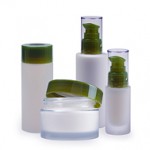Code Of Practice
 Our members uphold a strict Code of Practice in order to raise standards and protect the ongoing availability of aromatherapy products.
Our members uphold a strict Code of Practice in order to raise standards and protect the ongoing availability of aromatherapy products.
One of our major concerns is that of safety for the general public when using aromatherapy products. Therefore, we emphasise the great importance to our members of providing sufficient information on products to consumers, so that they know how to use the products they have purchased safely.
Other areas of our Code of Practice address the importance of supplying good quality products, particularly in the case of essential oils. To address these, and other important issues, our Code of Practice includes the following categories;-
Responsible Marketing
All promotional literature must give clear guidelines as to how the aromatherapy products are to be used, giving recommended dilutions where necessary. The Medicines Act clearly states that no medicinal claims can be made on labels, promotional material or advertisements – including web sites – for products that have not been licensed as medicines. Essential oils cannot be licensed since they vary like wine, from crop to crop. Therefore no aromatherapy product may make remedial claims if it relates to a specific disease or adverse condition of the body or mind.
Product Labelling & Packaging
Although detailed information regarding the usage and dilution of essential oils may be explained fully in leaflets, the following information and warnings must be printed on the consumer product label: –
- Instructions for use: e.g. add 5 drops of essential oil to 10 ml of carrier/6 drops in a bath etc.
- Keep away from children and eyes.
- Do not take internally or apply undiluted to the skin.
- The quantity supplied e.g. 5 ml/10 ml.
- The company name and address or postcode.
- Batch code number.
- Botanical and common name of plants.
Use of Integral Drippers
Integral single drop dispensers must be incorporated in all bottles of essential oils on sale to the general public. A bottle of essential oil with an integral dripper has a built-in safety factor, which prevents the contents being swallowed quickly by an unattended child.
Random Testing
The ATC has adopted a policy for the random testing of its members’ essential oils as a way of helping to maintain standards and confidence in our members.
Legislation, Regulation & General Conduct
Members are at all times required to comply with laws, regulations and guidance notes issued by Government or any other regulatory authority and must at all times conduct their business with their customers and the public generally so as to uphold the good standing of ATC. Failure to do so may result in disciplinary action and/or expulsion from membership.










